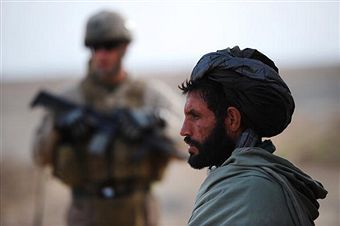 The London Afghanistan conference is meant to appoint a civilian NATO coordinator to help align the counter-insurgency effort. The well-respected British ambassador in Kabul, Mark Sedwell, is a front-runner (as, incidentally, was Geoff Hoon until he plotted against Gordon Brown).
The London Afghanistan conference is meant to appoint a civilian NATO coordinator to help align the counter-insurgency effort. The well-respected British ambassador in Kabul, Mark Sedwell, is a front-runner (as, incidentally, was Geoff Hoon until he plotted against Gordon Brown).
If the press just publish the news, many questions will go unanswered. That’s not right. For the new post means that a two-year effort to make the UN the main aid coordinator has failed, and the appointee is likely to produce little unless individual NATO allies award him some spending power – a very unlikely scenario.
There is nothing easier than to add a job to solve a problem, and sometimes it is the right thing to do. But often war-torn societies play host to a proliferation of envoys, ambassadors, representatives and so on. They spend most of their time coordinating with each other, each one owning only a small slice of the pie.
Former Afghan Finance Minister Ashraf Ghani and Clare Lockhardt have written persusaively about the problems with such an “development complex”. And General David Richards has pushed for a re-examination of civil-military command relationships to create a more workable set-up. The NATO post attempts to address these concerns but will not solve the underlying problem: the envoy has to influence national aid budgets, which is unlikely.
When I ran the UK/US/Danish Provincial Reconstruction Team in Basra, I tried to put all the donors on the same page. But often spending decisions had already been made, according to national plans not needs on the ground. The Kabul job is so much bigger and harder, but will be undermined by the same disunity.
The only chance of influencing national aid budgets is if a big figure fills the UN post; someone who could command headlines across the alliance and push for the right focus. But President Karzai baulked at appointing one such candidate – Paddy Ashdown – to the job. And I don’t see an unknown (if effective and well-regarded) British ambassador changing German or Italian spending priorities.
So governments should look for another big beast for the NATO job. Getting someone will be hard. The best candidates are unwilling to go and the available ones insufficiently senior. Yet it would be wise to consider the likes of Des Browne, who remains popular across NATO; former Australian foreign minister Gareth Evans; or former Dutch development minister and Sudan envoy Jan Pronk.






Comments